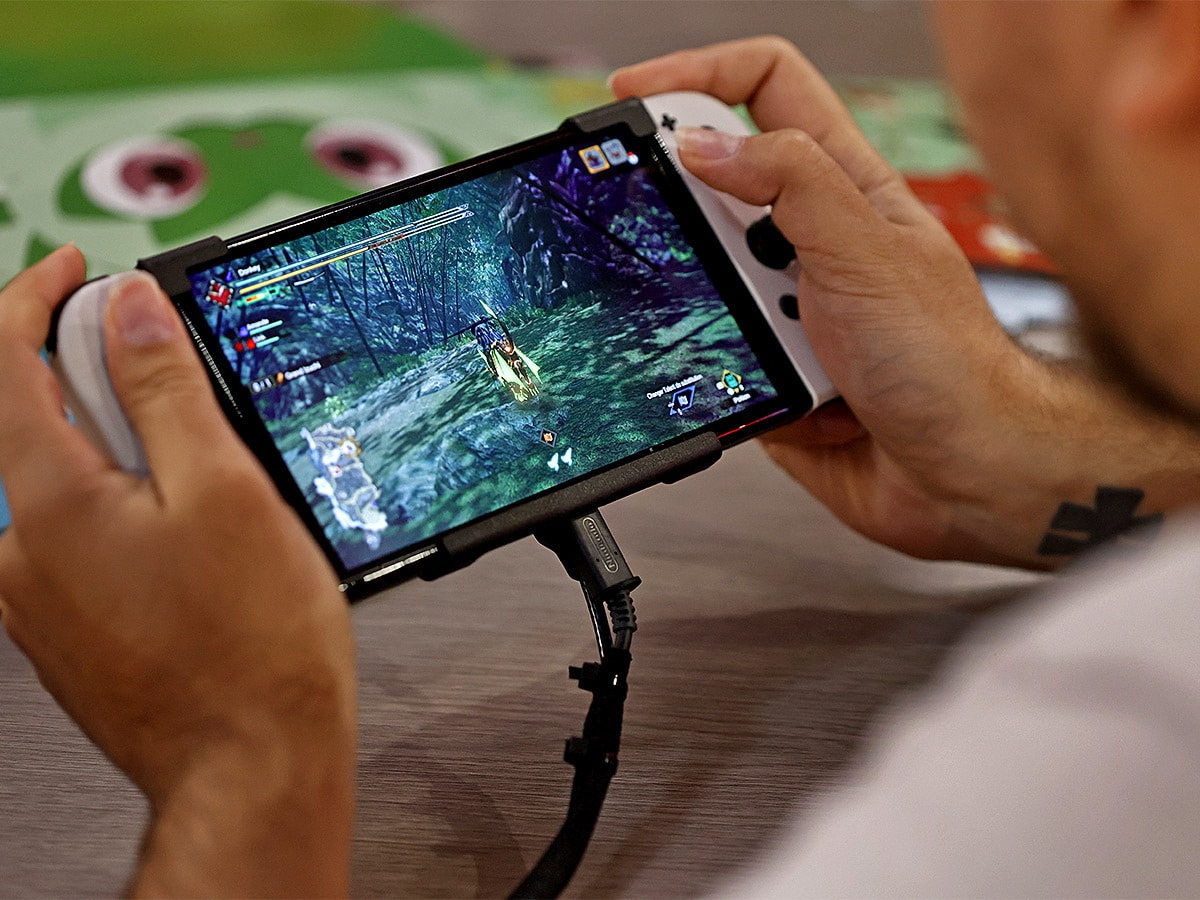As Microsoft’s war of words with Sony over its long-anticipated takeover of Activision Blizzard heats up, the technology company has signed an agreement to launch the Call of Duty franchise on Nintendo platforms. Along with a similar agreement with Nvidia, the move marks a charm offensive by Microsoft designed to reassure antitrust regulators.
- Microsoft has signed an agreement to launch Call of Duty on Nintendo.
- The move accompanies the start of an EU investigation into its Activision takeover.
- Nintendo and Activision are both top-five holdings in Global X Video Games & Esports ETF.
Activision Blizzard’s [ATVI] flagship franchise Call of Duty (CoD) will be brought to Nintendo [7974.T] consoles, with a binding agreement signed between Microsoft [MSFT], maker of the Xbox console, and the Japanese gaming company on 21 February.
Microsoft’s president Brad Smith tweeted on the day to confirm the deal, which he described as “just part of [Microsoft’s] commitment to bring Xbox games and Activision titles like Call of Duty to more players on more platforms.” The agreement will see CoD released on Nintendo “the same day as Xbox, with full feature and content parity”.
Nintendo’s share price closed 21 February down 0.95% from the previous session, though this reflects losses across the Nikkei 225 on the same day. Activision’s share price fell 0.7%, while Microsoft’s fell 2.1%. Activision’s and Microsoft’s movements outperformed weakness across the technology sector on the day, however, with the Nasdaq falling 2.5%.
In the year to date, Nintendo’s share price has fallen 7.4%, Activision’s has gained 0.25% and Microsoft is up 4.6%.
Activision takeover under the microscope
The confirmation seals a commitment made by Microsoft Gaming CEO Phil Spencer in December to bring the CoD franchise to Nintendo, and coincides with the opening stages of EU scrutiny of Microsoft’s proposed $68.7bn takeover of Activision. On the same day, Smith met regulators from the European Commission in Brussels to persuade them that the takeover will boost competition.
Recent pronouncements from other regulators have not been promising for Microsoft. The US Federal Trade Commission announced in December that it was seeking to block the move because it would restrict consumers’ access to Activision’s content on platforms other than Xbox.
While the initial Nintendo announcement sought to directly counter those concerns, regulators have apparently not been convinced. On 8 February, the UK Competition and Markets Authority published preliminary results of its independent investigation which concluded the deal could “result in higher prices, fewer choices, or less innovation for UK gamers”. Activision’s share price fell 3.6% following the news.
Chairmen on the offensive
Sony [6758.T] has sent Jim Ryan, president and CEO of its gaming division, Sony Interactive Entertainment (SIE), to the EU hearings.
One of the strongest opponents of the proposed deal, Sony has argued that CoD has such a loyal following that it could cause gamers to switch from PlayStation to Xbox should the franchise no longer be available on the former console. Activision is legally obliged to release the next three instalments of CoD on PlayStation. After that, a Microsoft-owned Activision could, theoretically, restrict the franchise to Xbox, forcing committed gamers to switch consoles.
Nvidia [NVDA] also sent representatives to the discussions in support of the acquisition. Microsoft has struck a deal with Nvidia, similar to the one it has made with Nintendo, to bring Xbox PC games to Nvidia’s GeForce NOW cloud gaming service.
This expanded the line-up of allies in Microsoft’s regulatory battle, which has become heated. Following the hearing, Sony said that Microsoft’s request to see SIE employee performance reviews—to support its allegation that Sony was paying developers to keep games off Xbox—was “obvious harassment”.
Karol Severin, senior analyst at MIDiA Research, believes the deal between Microsoft and Nintendo represents a win-win. “Regulators get assurances about any potential ‘threat’ of Call of Duty going exclusive,” he told Wccf Tech. At the same time, the companies will unlock new audiences and streams of revenue.
Funds in focus: Global X Video Games & Esports ETF
Activision Blizzard is the second-largest holding in the Global X Video Games & Esports ETF [HERO] with a 6.38% weighting as of 28 February. Nintendo is its fifth-largest, with a 5.50% weighting. The fund doesn’t hold Microsoft, Nvidia or Sony as of that date.
HERO is up 1.1% year-to-date, though it has fallen 26.5% over the past 12 months.
Analysts polled by Refinitiv yield a median 12-month price forecast of ¥6,200 for Nintendo and $95.00 for Activision Blizzard, implying 19.3% and 23.8% growth respectively. The equivalent figure for Microsoft is $290.00, suggesting that analysts see the stock gaining 15.9% from its 27 February closing price of $250.16.
Disclaimer Past performance is not a reliable indicator of future results.
CMC Markets is an execution-only service provider. The material (whether or not it states any opinions) is for general information purposes only, and does not take into account your personal circumstances or objectives. Nothing in this material is (or should be considered to be) financial, investment or other advice on which reliance should be placed. No opinion given in the material constitutes a recommendation by CMC Markets or the author that any particular investment, security, transaction or investment strategy is suitable for any specific person.
The material has not been prepared in accordance with legal requirements designed to promote the independence of investment research. Although we are not specifically prevented from dealing before providing this material, we do not seek to take advantage of the material prior to its dissemination.
CMC Markets does not endorse or offer opinion on the trading strategies used by the author. Their trading strategies do not guarantee any return and CMC Markets shall not be held responsible for any loss that you may incur, either directly or indirectly, arising from any investment based on any information contained herein.
*Tax treatment depends on individual circumstances and can change or may differ in a jurisdiction other than the UK.
Continue reading for FREE
- Includes free newsletter updates, unsubscribe anytime. Privacy policy





